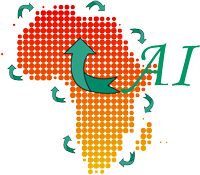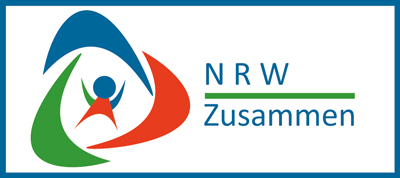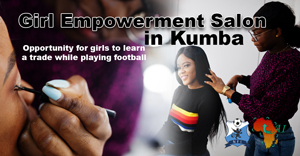African Impulse - The Ediki Mbonge solar water project
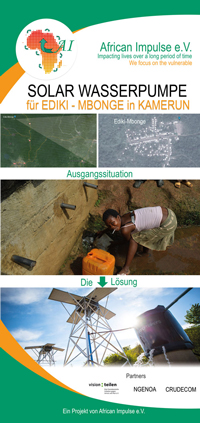 Project Status : Completed.
Project Status : Completed.
Ediki Mbonge is a small village in the southwest province of Cameroon. The living condition of the people there is difficult. The villagers live mainly from subsistence agriculture. The main water source for the more than 7,000 villagers, including a kindergarten and three schools (primary and secondary), comes from a spring lying at the outskirts of the village. The hygienic condition of the water source is very deplorable.
In the dry season, the water is used up more quickly. In such situations, the villagers have to walk long distances to find other sources. In addition, many villagers suffer from water related diseases, mostly children. Most of the disease can be attributed to contaminated water. This viscous circle has already taken a deadly end for many, especially children in the village. Most often than not, girls and mothers are those responsible for fetching water.
Clement Nkamanyi, president of African Impulse e.V., a Cameroonian of origin who lives in Germany and has his origin not far from this village is the initiator of the project. He visited the village with the intention of integrating in farming activities in 2013. He was immediately affected and touched by the poor water supply situation, health hazards and education conditions in the village.
At the request of the villagers, he showed his willingness to assist. On the 1st of April 2014, he held the first official meeting with the village council, including the chief of the village. In this meeting, the problems in the village were discussed and priorities jointly defined. The water problem was fixed as a top priority.

Clement visits the location (Left), How the system shall look like(Right)
While in Germany, the African Impulse sought out finding the best solution for resolving the water problem. The best solution was found when he stumbled upon an innovative company in Austria which produces a "Do It Yourself" water pumping system. With intense discussions, African Impulse e.V was amongst the first selected organizations to use the DIY Solar Pump kit. The village council committed to engage the villagers in assuring the maintenance of the system. A cooperation agreement was signed with the NGENOA CIG in the village in order to carry out the water project. Being in the village, NGENOA CIG also has sought the support of a local cooperative in Kumba, CRUDESCOOPS, to assist in the project.
This project is being funded through financial subsidy of the State Chancellery of the State of North Rhine WestPhalia in Germany.

We would like to thank our German partner vision:teilen e.V. who setup a page in Betterplace.org and brought in a part of the finance.
Special thanks also to Club 16 e.V. for your financial support.
We very much appreciate the financial support we are getting from individuals in Germany, Switzerland and the US.
Some videos of the project
1) Project trailer
This video gives you an idea of the situation which led to the project and what we expect to achieve.
2) April 2017 - Milestone 1 - Water flows
As prospected, a borehole was dug with heavy machinery and at 44 meters, we met the water level. Imagine the joy on these kids's faces as they see this dream become reality!
3) Milestone 2 - Solar Pump system construction (Part 1)
In December 2017, led by the president of the African Impulse, the youths of the village all joined in mounting the tower and constructing the Solar powered part. We are very proud to have completed the project and the situation in the village has changed positively forever
4) Milestone 2 - Solar Pump system construction (Part 2)
In December 2017, led by the president of the African Impulse, the youths of the village all joined in mounting the tower and constructing the Solar powered part. We are very proud to have completed the project and the situation in the village has changed positively forever
Sustainability Development Goal Nr. 6
By carrying out this project, we shall be playing also our role in making the Sustainability Development Goals a reality.
Some key facts about clean water and sanitation (SDG 6)
- - 2.6 billion people have gained access to improved drinking water sources since 1990, but 663 million people are still without
- - At least 1.8 billion people globally use a source of drinking water that is fecally contaminated
- - Between 1990 and 2015, the proportion of the global population using an improved drinking water source has increased from 76 per cent to 91 per cent
- - But water scarcity affects more than 40 per cent of the global population and is projected to rise. Over 1.7 billion people are currently living in river basins where water use exceeds recharge
- - 2.4 billion people lack access to basic sanitation services, such as toilets or latrines
- - More than 80 per cent of wastewater resulting from human activities is discharged into rivers or sea without any pollution removal
- - Each day,nearly 1,000 children die due to preventable water and sanitation-related diarrhoeal diseases
- - Hydropower is the most important and widely-used renewable source of energy and as of 2011, represented 16 per cent of total electricity production worldwide
- - Approximately 70 per cent of all water abstracted from rivers, lakes and aquifers is used for irrigation
- - Floods and other water-related disasters account for 70 per cent of all deaths related to natural disasters
Some pictures of the project:




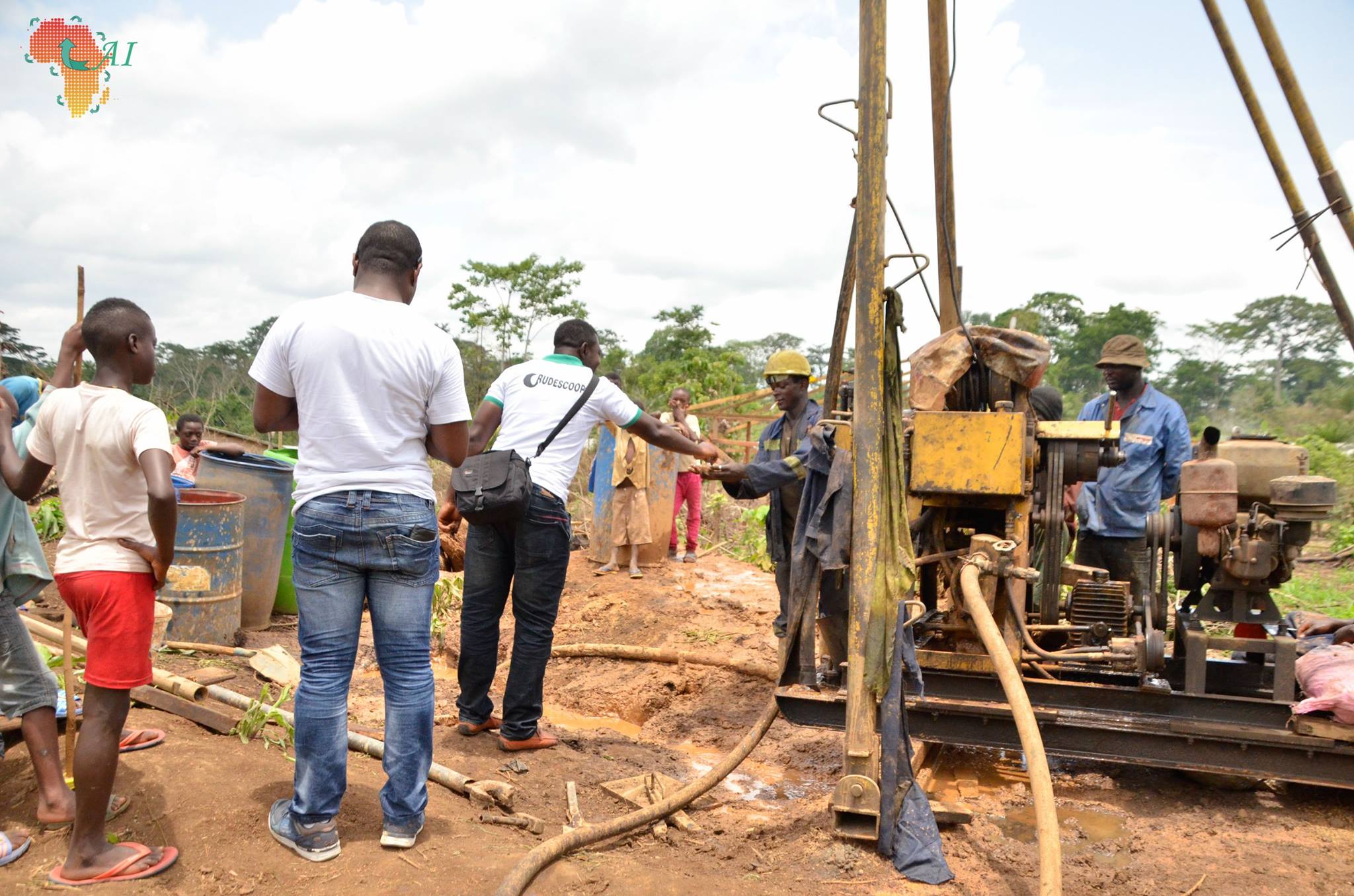
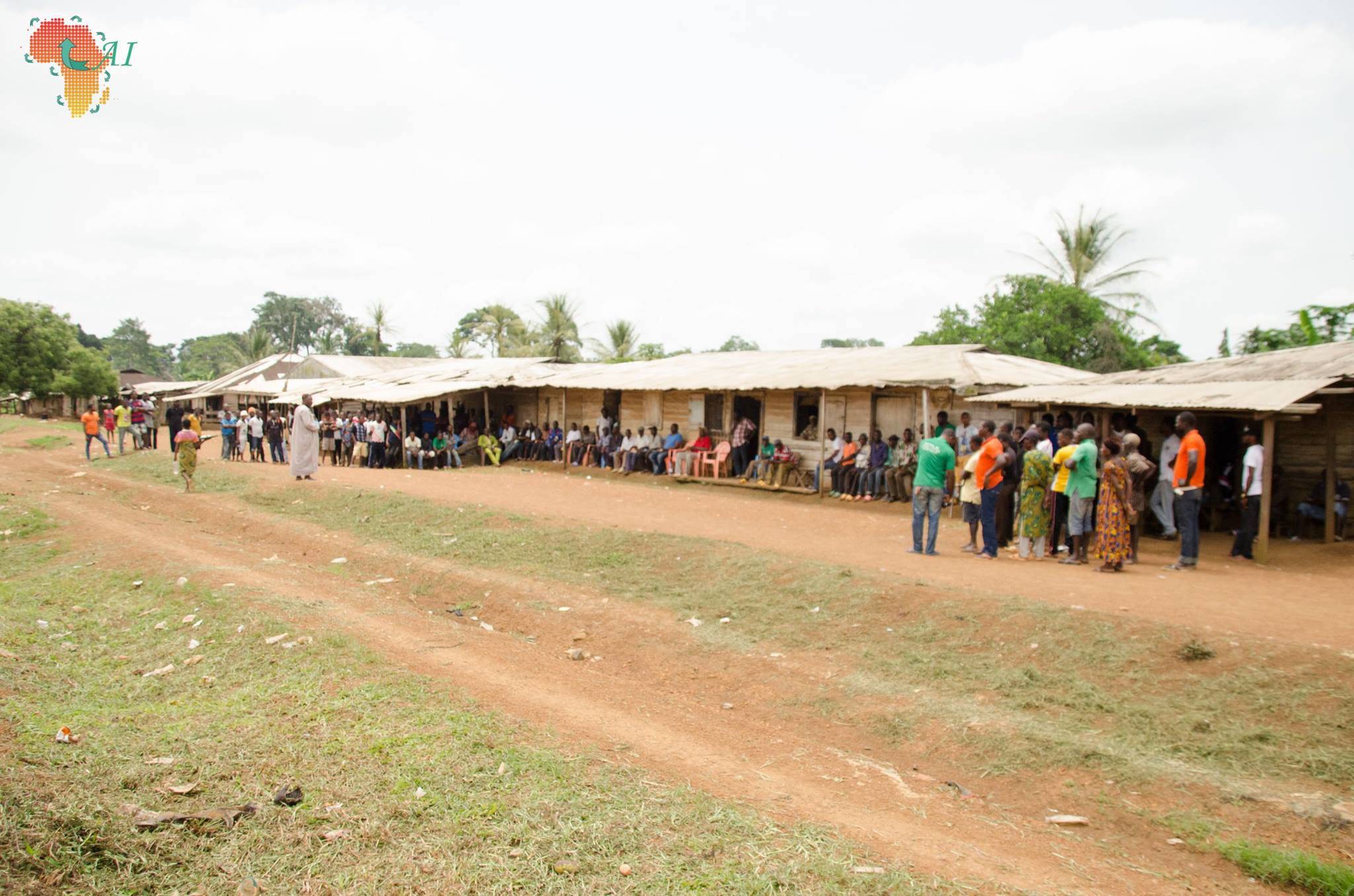
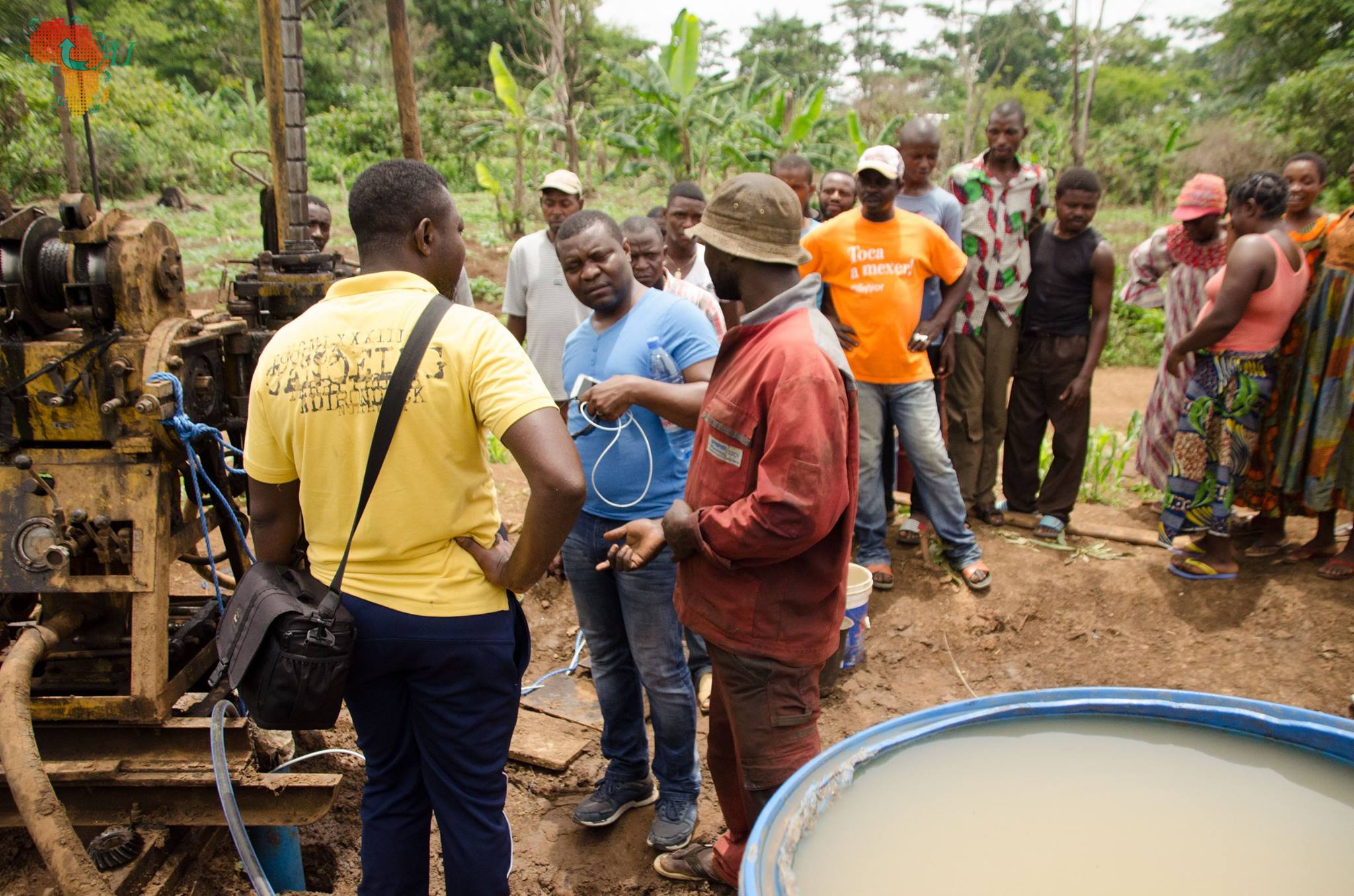
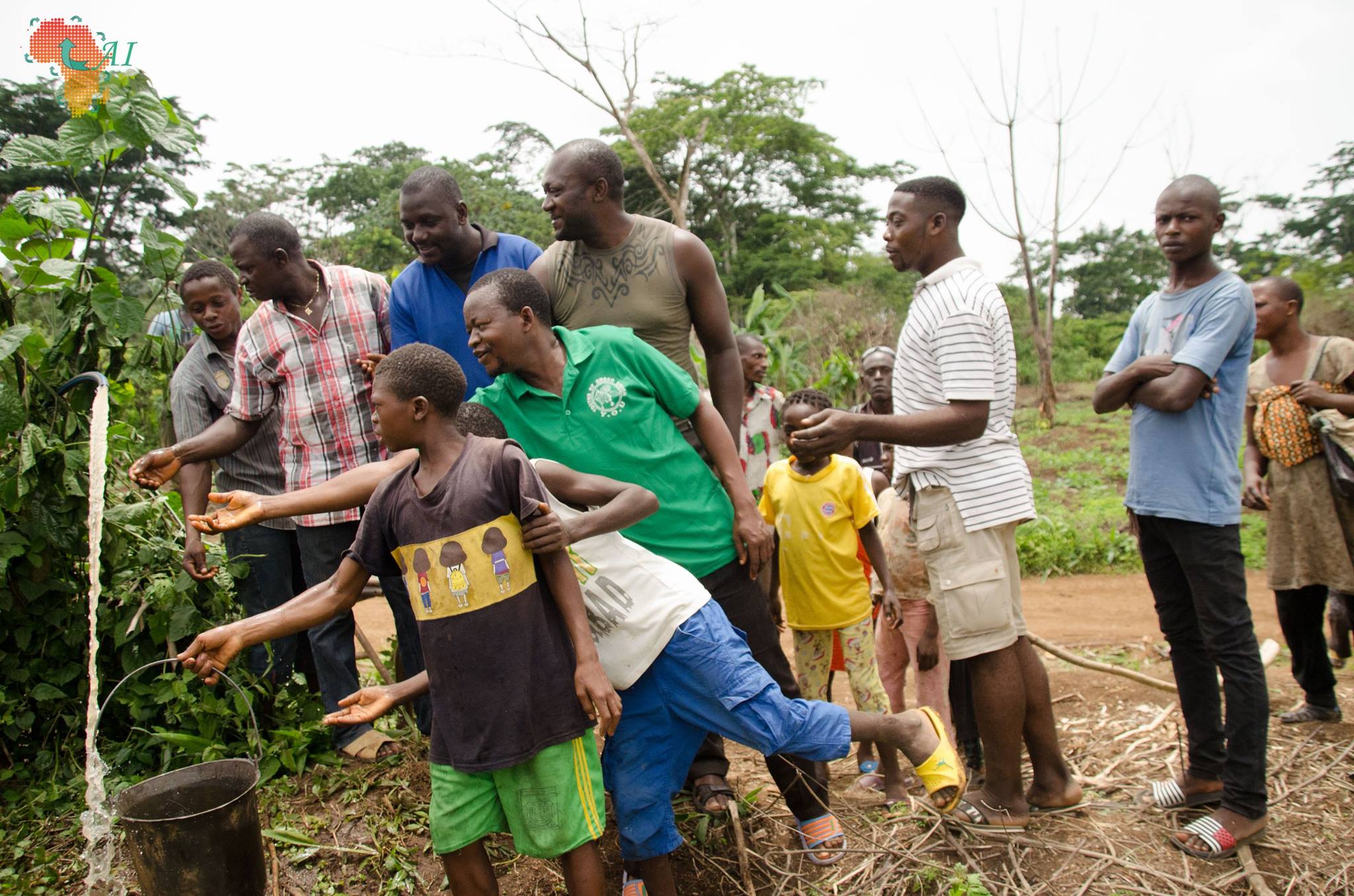
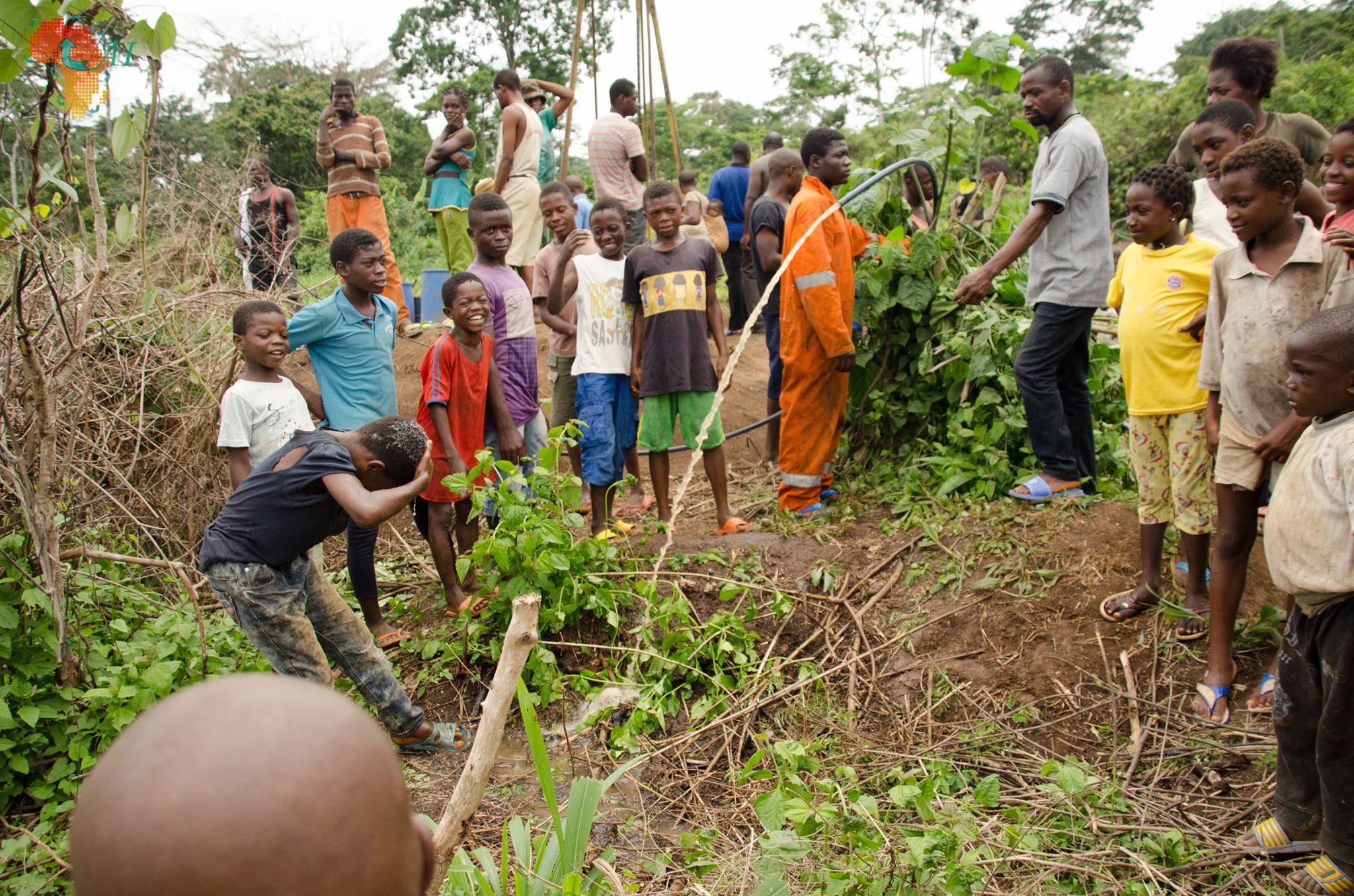
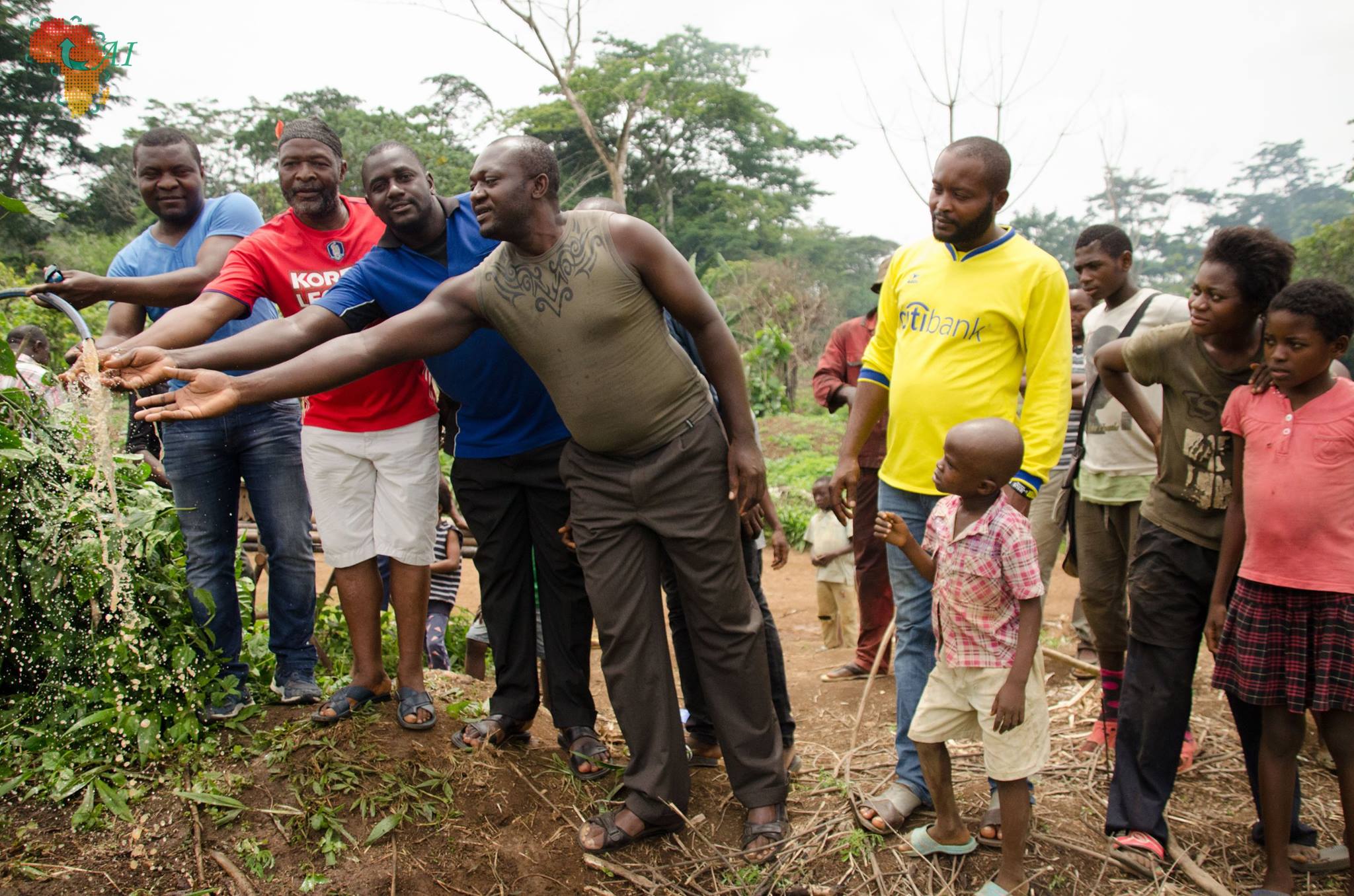
You can view more pictures here
